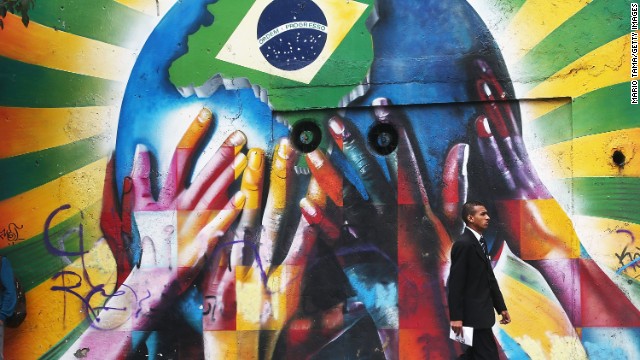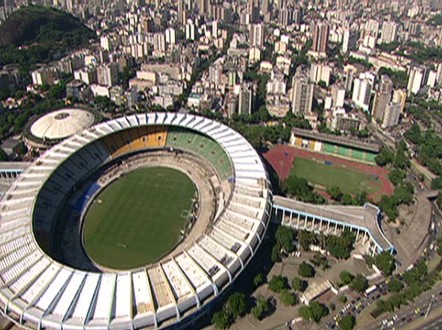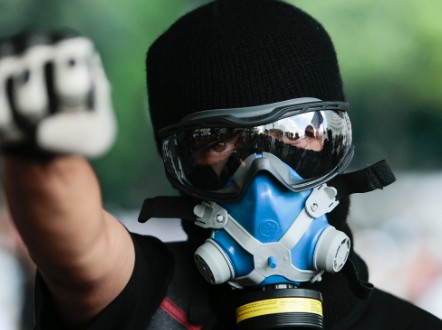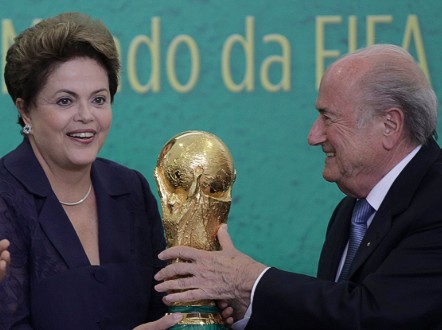Who are the real winners and losers of the 2014 World Cup?
June 11, 2014 -- Updated 1140 GMT (1940 HKT)
STORY HIGHLIGHTS
- The World Cup is expected to bring in billions to Brazil's economy
- Many protestors claim this money will remain in the hands of a well-connected few
- Brazilian officials say World Cup has boosted infrastructure projects and created jobs
- Country has experienced wide protests over hosting the World Cup
Follow us at @WorldSportCNN and like us on Facebook
(CNN) -- When Maria Elza de Fatima learned the World
Cup was coming to Brazil in 2014, she thought the good times were soon
to return.
Once the owner of a busy
clothing stall, the 59-year-old Sao Paulo resident had scraped around
for work since her license expired and wasn't renewed by city
authorities.
But now the World Cup was
coming to her home town -- along with many thousands of fans, visitors
and tourists -- opportunities would abound, wouldn't they? It hasn't
quite turned out that way.
De Fatima may be one of
the lucky ones who has been able to secure an official World Cup job but
what she can do and where she can work is limited.
Alongside roughly 600
others, she has been given permission to sell ice packs and soft drinks
outside the Sao Paulo stadium. Only official FIFA partners
are allowed to hock their wares here and within the arena. De Fatima is
all too aware that many others haven't been so fortunate.
She recalls the days when
as many 22,000 stall-owners plied their trade on Sao Paulo's streets. A
mere 600 jobs (although there are also temporary roles in other areas)
isn't nearly enough for them, she laments.
"This World Cup is not
for the Brazilians," de Fatima replies when asked whether Sao Paulo has
experienced the boon she expected. "It is for the foreigners and FIFA
friends."
Nationwide protests
De Fatima isn't the only disillusioned Brazilian.
A recent poll by the Pew
Research Center found that 61% of respondents felt hosting the World
Cup would be a bad thing for their country.
According to Marina
Mattar of the Sao Paulo Popular Committee of the World Cup, an umbrella
organization for disparate protest groups in the city, the tournament
will bring a lot of money into Brazil, but mainly to a well-connected
few.
"The World Cup is
bringing benefits to Brazil but it's to the economic and political
elites -- not to street vendors, not to small companies, entrepreneurs
and not to workers in general," she said.
Key to this debate are the spiraling costs of building new stadia across the country to host matches during the World Cup.
Promotional literature
released by the Brazilian government puts expenditure in terms of
funds, loans and credit lines from the public purse for stadium projects
at at $3.5 billion.
But a recent audit suggests the price has escalated to $4.2 billion.
The Maracana stadium in Rio de Janeiro has been redeveloped for Brazil 2014 (CNN)
"The stadiums are not
being built for ordinary people because the price of the tickets is very
high and many people will not be able to go watch football any more.
"Instead, the stadiums are in a way very good for big engineering companies to make money," Mattar said.
People have also been
evicted from their homes to make way for projects relating to the World
Cup and there has been the "pacification" of favelas, which has seen
police forcibly occupy some of the poorer neighborhoods in the city, she
added.
Such concerns are far from exclusive to Sao Paulo.
All across Brazil,
street protests have raged in the last year while popular committee
groups have also sprung up in Rio de Janeiro, Belo Horizonte and beyond.
A multitude of
grievances, not all directly related to the world Cup, have driven this
discontent -- including rising transport prices, higher living costs,
housing concerns and accusations of police brutality.
Fairness and equality are at the heart of these concerns.
While Brazil has grown
rapidly since the turn of the century, creating a new middle class,
inequality remains high and some fear the very poorest are being left
behind.
According to the CIA World Factbook, Brazil ranks 17th out of 140 countries in terms of the highest levels of income disparity.
Protesters are asking
why an emerging nation is spending billions on hosting a football
tournament when that money could be better directed towards alleviating
poverty.
"It is unacceptable to
build a mega event that will provide high profits to FIFA ... while
there are serious problems of social inequality in the country," said
Jean Marcelo, an activist with the student protest group Domino Publico.
"The World Cup reaffirms
an existing logic that rules the Brazilian government. It's a logic
benefiting big businesses and a small elite who occupy the top of the
social pyramid," he added.
A protester takes to the streets of Sao Paolo (Miguel Schincariol/AFP/Getty Images/)
But with new roads,
airports and stadiums being built, all of which have brought jobs and
improvements to the country's infrastructure, there are many who say the
initial outlay, however eye-watering, will be worth it in the long
term.
The Brazilian government estimates that 710,000 temporary and permanent jobs will be created during the tournament while fan spending alone is expected to total $13 billion.
On top of that, many
Brazilian cities see the exposure they will gain hosting matches as an
opportunity to position themselves as attractive destinations to
potential investors and tourists now and in the future.
A World Cup for all?
"There has been
significant investment in urban mobility projects, in airport
modernization projects, in port modernization projects,
telecommunications infrastructure and security infrastructure," Brazil's
deputy sports minister Luis Fernandes told CNN.
"You have to remember
that Brazil is still a developing nation... as well as providing jobs
for hundreds of thousands of Brazilians, these investments will benefit
people in terms of the services provided," he added.
"The fans who come to
the World Cup won't be taking back with them the new urban transport
solutions or airport extensions," Fernandes said.
Dilma Rousseff with FIFA president, Sepp Blatter (AP Photo/Eraldo Peres)
Paulo Esteves, general supervisor at Rio de Janeiro-based think-tank, the BRICS Policy Center, agrees with this viewpoint.
"In a way, what we are
seeing are investments that otherwise do not take place," he said. "The
World Cup has been a kind of catalyst for this."
"The government did not
take money from health or transportation to invest in stadiums.
Investments in public health and transportation will go on and on."
Esteves is quick to add,
however, that this doesn't mean public grievances are without merit,
and believes the World Cup has created a platform for groups and people
dissatisfied with how Brazil is developing as to unite and make their
voices heard.
In recent weeks
teachers, metro workers and bus drivers have gone on strike demanding
better pay and conditions. Others have taken to the streets to campaign
for better housing.
Rather than highlighting
the negatives of hosting a football tournament, these protests "are
really talking about the other side of economic modernization in
Brazil," Esteves said.
"The World Cup is not a
target per se but it is an opportunity to vocalize and make stronger ...
claims for strengthening the process around political and social
inclusion."
However, Mattar and
others in protest movements maintain their opposition to the World Cup
is based on principled rejection of spending decisions tied to what they
regard as an elitist, closed event.
Yet, with billions of
dollars already spent and the tournament about to start, they are
realistic about what opposition can now achieve.
Still, Mattar hopes the
anger felt by many Brazilians will reach the watching world and provide
lessons for future hosts of big sporting events, including the next two
World Cup host countries.
"We hope our legacy will
be to show to people in Russia, Qatar and maybe in other places that
these events and the way they are organized (make it) impossible they
will bring any benefits," Mattar said.
 So who is the World Cup really for?
So who is the World Cup really for?


